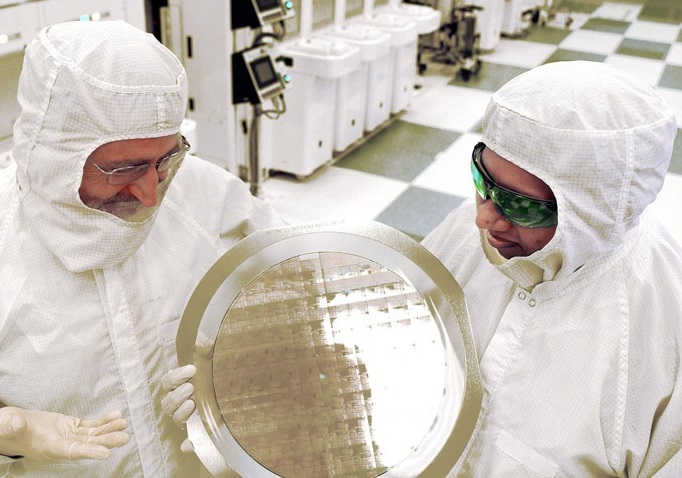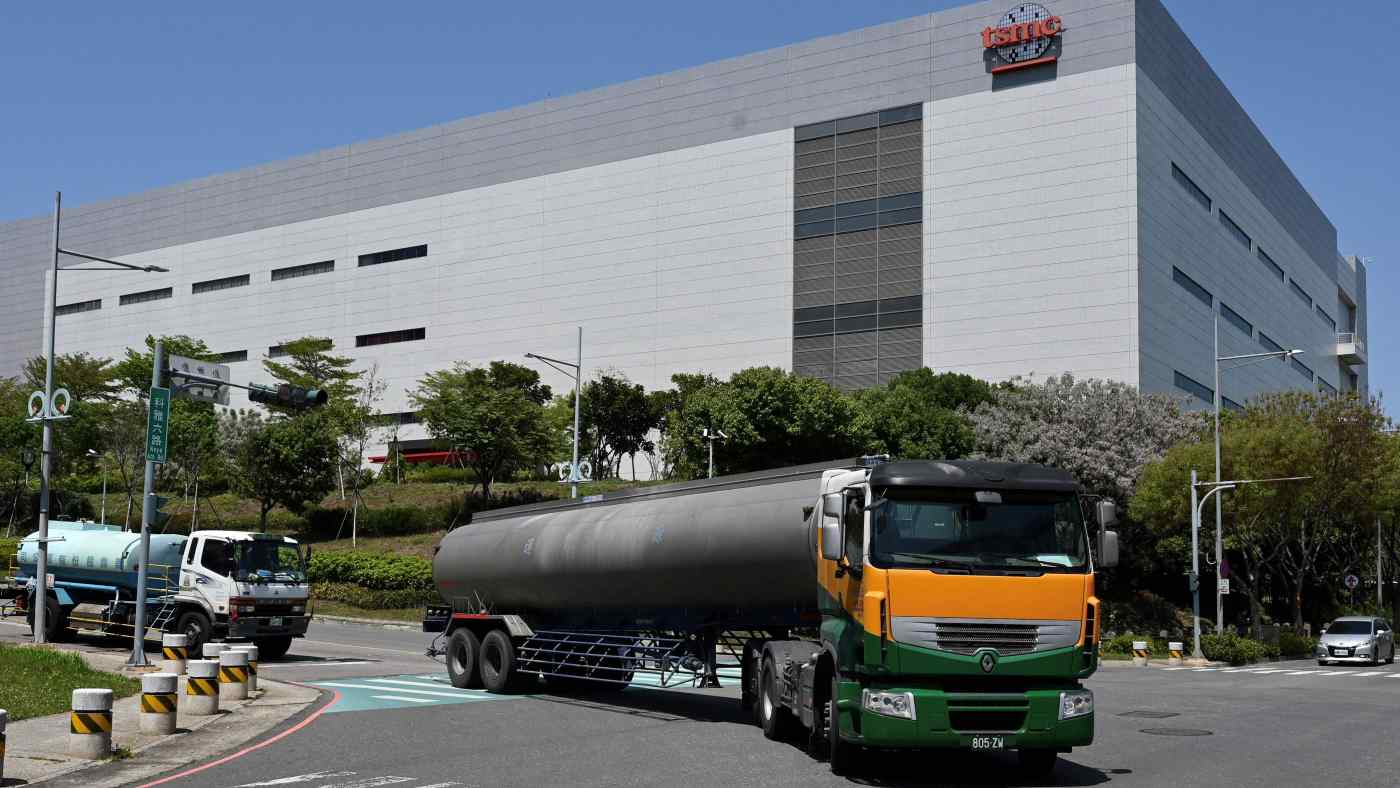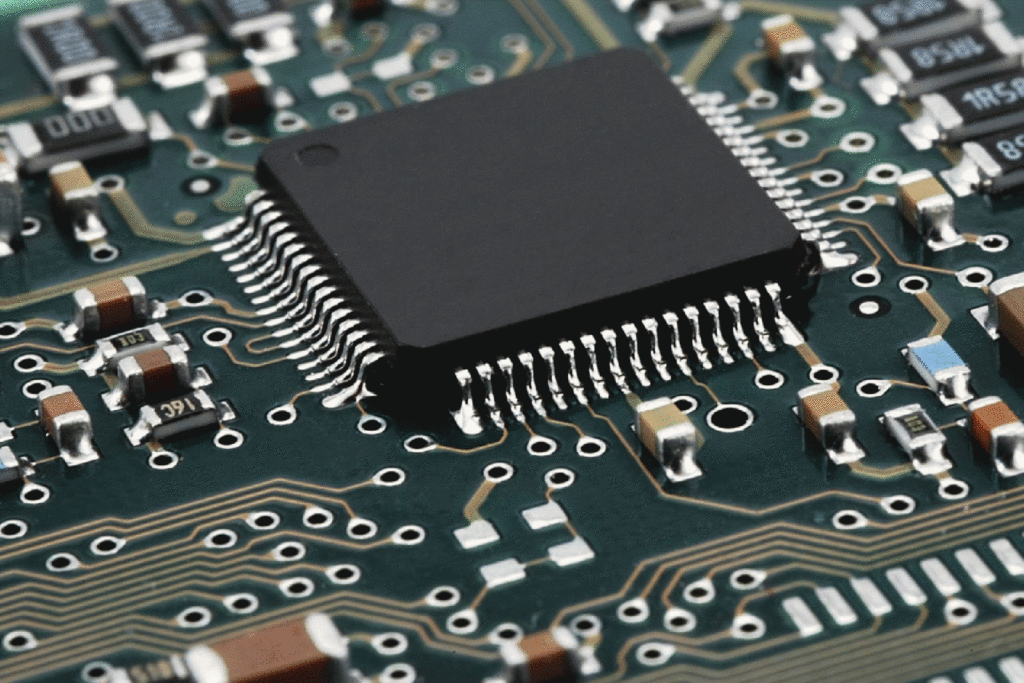Chips are small but a giant element of the electronics world in terms of his function, which is involved in a wide range of electrical products from computers to televisions, from mobile phones to cars, from lighting to white goods, from cash registers to toys.
The chips are first produced in the form of a grouped plate called a wafer, then sliced and added to each chip with a connecting leg and thermoplastic structure, ensuring that it takes its final shape. Although USA is far ahead in terms of design in chip technology, in terms of production Taiwan Semiconductor Manufacturing Company (TSMC) and South Korean Samsung companies take the lead.
These two companies have invested billions of dollars in the very complex 5 nanometer chip production facilities in the past years. Today,the both companies produce 80% of microprocessor chips and 70% of memory chipsin the world. The remaining producers have been struggling with low earnings and high interests for several years, so it seems impossible for them to make such investments.

Through the effect of global warming, drought in Taiwan has reached its highest level in the last 50 years. Since the drought, which has an intense effect, threatens the water resources of the island, industrial facilities cannot be given enough water. TSMC has reduced its capacity due to the shortage of water resources and carry on the production with transport water under limited conditions./p>
At the end of March, a fire case has occured in the chip factory of Renesas Electronics, which has a 30% share in chips used in cars.
The fire damaged the production lines of the new technology chips and broke the machines unusably. This problem has affected almost all car factories in the world. Today, there are at least 50 chips in a car, serving from safety to comfort, from cable saving to serviceability, from emissions to fuel economy.
This is why the automotive industry, which produces according to the (just in time) working order, has been in trouble. It is estimated that sales will decrease by 64 billion dollars in 2021 due to the chip crisis.

When the restrictions started due to the effect of the pandemic, most people started working at home. This demand has increased the computer sales. In addition, those who stayed at home increased the demand for, tablets and smartphones to spend their free time. Samsung is one of the largest memory chip manufacturers in the world, producing products both for itself and for other brands. Samsung announced that it could not keep up with the increasing memory chip orders.
Under these circumstances, chip manufacturers responded to the additional demand by raising prices, not production capacity.
Chip prices rose by 20-50%. These problems in chips caused a chain increase effect in the prices of other electronic materials by 10-50% and it’s expected these increases will continue.
It is not enough to settle for the extreme prices, there is a supply chain problem as the delivery times changes between 20-50 weeks.
It does not seem possible for the prices of chips and electronic materials to return to the pre-pandemic period.
It is obviusly that there is a capacity problem related to the future period. While it is predicted that the supply shortage will improve slightly in 2022 compared to today, the light at the end of the tunnel is not bright yet in terms of prices.
The supply shortage will not get better before 2024 due to the increasing demand against the decreasing supply. Prices may decrease after 2024, but it does not seem possible to return to the old prices.
Relevant Sources
Brands affected by the chip crisis
|
> Fiat Chrysler |
> Renault |

Some of TSMC Clients
Altra Corporation
AMD Advanced Micro Devices
Apple Inc
Allwinner Technology
HiSilicon
LSI Corporation Marvell
MediaTek
Nvidia Corporation
NXP Semiconductors NV
Qualcomm Spectra7
Spreadtrum
ST Microelectronics
Texas Instruments